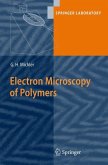Polyelectrolytes, i. e. , water-soluble polymers with a lot of dissociating functional groups, and nanoparticles, i. e. , ?ne particles with diameters on the nanometer scale, are two substance classes of growing interest. Both polyelectrolytes and nanoparticles can be found in many industrial applications such as in paints, - per coatings, cosmetics, and pharmaceuticals. For adjusting the properties of such multicomponent systems, the knowledge of the macromolecular and electroch- ical features of the polyelectrolytes on the one hand, and the size and shape of the nanoparticles on the other hand is essential. Understanding the basic principles involved in the preparation of nanoparticles and control of the interparticle interaction forces by adsorbing polyelectrolytes is therefore crucial, both from a scienti?c and application oriented point of view. Over the last years, the term nanotechnology, which refers to the technology that produces nanosize particles, has been established, and a new fast-growing market has been born. The pioneers in this ?eld were the alchemists, who were already able in the 16th century to produce colloidal gold, however, without kno- edge of the scienti?c background of the formulation process. Today, of course, we know much more about the colloidal metal nanoparticles, but still some questions are open. Therefore, especially the formation, characterization, and stabilization of gold nanoparticles as a nanoscalic model system in presence of polyelectrolytes, is discussed here in more detail.








